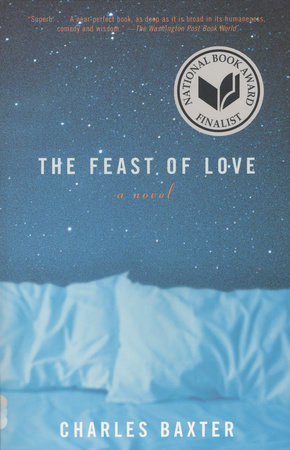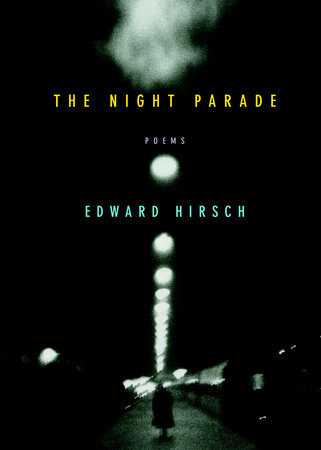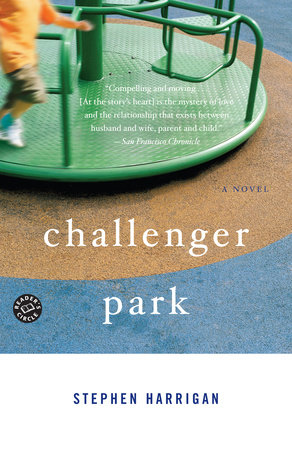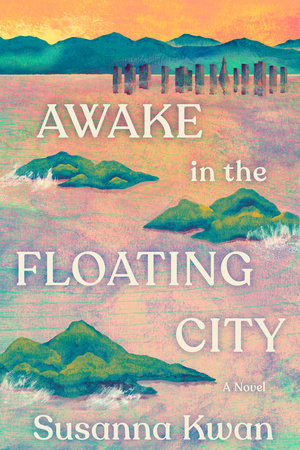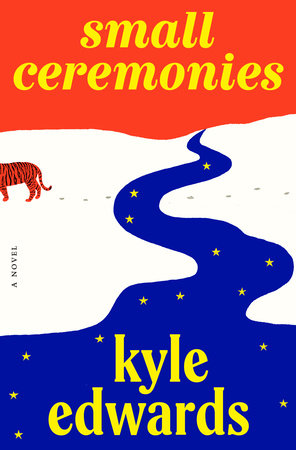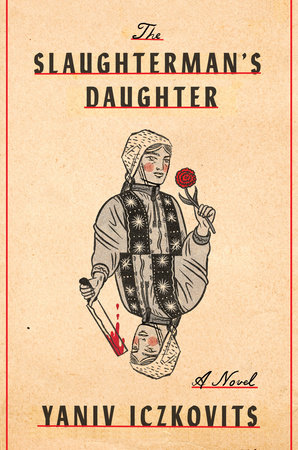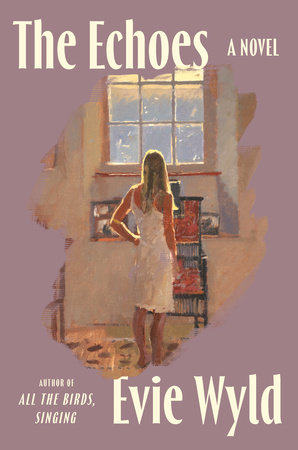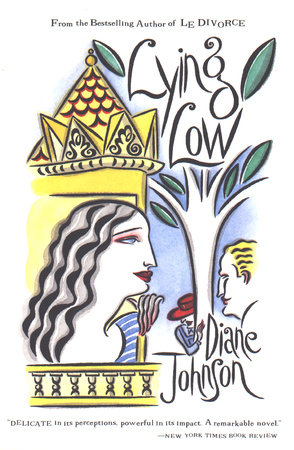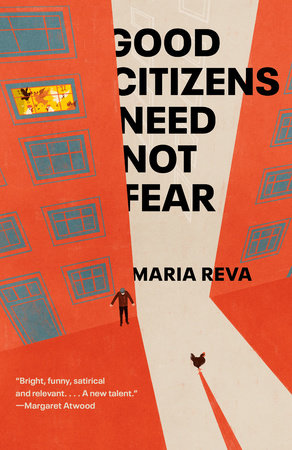Q: The Feast of Love is written from the first-person perspective of a character named "Charlie Baxter." First, is this character you? And second, how did you come up with this idea?
A: The essence of that character—the insomnia, the waking-up without knowing where he is or who he is, the fact that he’s a writer—that’s all me. "Charlie Baxter" lives on my street in Ann Arbor, where he walks the same paths I walk on, he has the same dog, he even sounds like me when he opens his mouth and talks. But at the bottom of the stairs in his house is a mirror that I don’t own, an imaginary mirror, and everyone he meets or talks to is imaginary. "Charlie Baxter" suffers, he tells us, from "identity lapses," as every novelist does.
I came up with this idea out of sheer desperation. I was stuck on a new project, which I wanted to be a love story of some sort, and I didn’t know how to go about it, or even how to start it. So I began by using my own insomnia, and a nighttime walk I took once down to the vacant lot at the corner of our street. I heard voices coming from someone’s house, and I thought of that line from Shakespeare, "the night air is full of voices,"and I thought: I’ll write a novel with voices, a sort of Midsummer Night’s Dream in which people are paired off with the wrong partners at first, and then are paired off with the right partners later, and everyone will tell their stories to Charlie, who will be this shadowy listener, like the reader. Like a friend, a therapist, or a detective.
Q: Did you witness anything else in the novel directly?
A: Well, my son and my wife and I were once bicycling on a weekend, and we bicycled into the Michigan football stadium in the afternoon, and we saw a couple, partially clothed, down on the fifty yard line, making love in broad daylight.
Q: How did your son react?
A: He asked what they were doing down there. He was about ten years old. I told him they were kissing.
Q: Edmund Morris recently got a lot of flack for creating a fictional character bearing his name in his Reagan biography—are you worried you might get a similar response for using this unique technique?
A: Not really. For one thing, I wasn’t writing an official history of a person or time, except an imaginary history, which is what fiction does. My book advertises itself as a novel, right on the title page, and there’s one of those disclaimers about all the characters being fictitious, and any coincidence between them and real people living or dead being coincidental, etc. Besides, I’m not in the novel all that much. I slip into the identities of the characters, the way a novelist is supposed to, and if you really wanted to find out about me from this book, you wouldn’t find out very much.
Q: Why not?
A: Because I like to think that I’m pretty ordinary as a human being. I’ve been married for twenty-five years, and I drive a four-door sedan around town, and try to pay the bills on time. My characters are much, much more interesting than I am.
Q: How so?
A: They’re funnier, sexier, more desperate, more beautiful, much more violent and abusive, more talkative, more opinionated, even more eloquent than I am–much more suited to a love story than I am. They’re on the prowl for love, all of them, their voices raised.
Q: Why do you think up characters like this? What’s the eternal appeal of love stories?
A: Love stories combine, like most good stories, excitement and interest. A good love story starts with an air of excitement (stage one) that moves into interest and complication (stage two), once you get to know the person. The act of love at its various levels becomes an act of knowing someone. Love stories that try to stay at the level of pure excitement turn into a form of pornography. As for the characters, the person could be a clerk in a coffee shop or a litigation lawyer or a professor of philosophy or a meter maid. Everybody’s love life is interesting, no exceptions to that rule. The trick is in avoiding sentimentality.
Q: There’s a lot of sex in your book, although it’s not particularly explicit, except here and there…
A: I tried to make it bawdy–that is, laced with humor–rather than romantic, you know, with the violins and the soft focus and the exclamation points and the bittersweet weeping. Chloé loves love, for example, but she has a good sense of humor. So does Bradley, for that matter. Diana doesn’t, but she’s a lawyer after all. There’s a wide range of character in this book, a spectrum.
Q: Charlie, you’re probably best known as a short story writer. Do you have a preference between writing novels and stories?
A: I love them both, but my stories look like regular stories; however, my novels don’t seem to look like anyone else’s.
Q: Why not?
A: My novels are like long trips that you take on a commuter airline. There are a great many landings and take-offs, a few stops in-between.
Q: You mean that there are a lot of stories within the novel?
A: Yeah. Some of the chapters started as short stories. Bradley’s trip to the Jackson Cascades began that way. (The place really exists, incidentally. They were playing Mantovani the evening I went there, and they were selling miniature fly swatters.)
Q: Why do you have so many individual stories inside the novel?
A: Because I like novels that stop to tell individual stories, novels that slow down, novels that can pause long enough in the middle to give you, for example, a cure for dandruff or a recipe for beef burgundy. I don’t like to be rushed. I once tried to write conventional novels and failed miserably. As a result, my novels are mosaic-novels. I write them the only way I can. I ended up imagining this one as a collection of wheels, or gears, turning separately, and then coming together, so that they all meshed at the end. Like a watch, that tells time.
Q: Is there an over-arching theme to The Feast of Love?
A: Yes. Love invites comedy and happiness through one door, and violence through the other door. You have to be careful which door you open. People who are successfully in love are often comic, and people who are desperate for love are often crazy and dangerous, both to themselves and to others. There is no madness like the madness of love. Also, it is not true that love always makes you happy. It gives your life a size and scale, but it does not always make you happy. Sometimes it makes you profoundly and truly miserable. You wouldn’t always guess that if you just watched TV and the movies.
Q: Your stories have been compared to those of a short story master, Raymond Carver–can you respond to this?
A: I’m flattered, but we’re very different. Or, rather, this: his characters are more often desperate than mine. The weight on their souls seem to be greater. Alcoholism plays a greater role in his stories. I was the reader for the audio version of "Where I’m Calling From" for The Best American Short Stories of the Century, and I had to put more weight on, in my voice, for the story to sound right. I had to sound more weighed down than I usually do. Lots of pauses between sentences.
Q: The character Chloé (or as she says it, Chlo-ay) is such a strong, independent, and unique young woman. Reading her thoughts in The Feast of Love is like talking to a real person. What was the impetus for her character?
A: I wish I knew. You can’t just will characters into existence. One day I sat down at the word-processor and her voice came to me, fully forward, fully formed, and I started laughing, and I began to write it down. Every time I sat down to do a Chloé chapter, I could hear her as clear as day. Of course, I’ve had students who talked a bit like her–we all know people a little like Chloé–but what knocked me over was the force of her character once she got started. I’d be driving my car, and I’d hear something she might say. "That boy befriended me. I suppose I made a man out of him, but that doesn’t seem like much of an accomplishment." I was just outside Windsor, Ontario, near the customs booth, when she said that.
She wasn’t that much more real to me than any of the other characters, but Chloé has the advantage of being young, sexy, and slangier, more open and colloquial. She’ll tell you anything, absolutely anything about herself She has no shame. She’s shameless. She’s proud of her shamelessness. I love shameless people. That’s useful in a character.
Q: Who was the hardest character to get on the page?
A: Diana. She’s smart and she’s mean, and most of the time, she doesn’t exaggerate. She’s a somewhat unsympathetic character, but I wanted readers to be interested in her, even a little sympathetic to her, despite all her sharp edges.
Q: Is she a part of you?
A: Anybody is a part of anybody, if you listen, if you invite them into your psyche.
Q: The Feast of Love has been described as A Midsummer Night’s Dream set in Ann Arbor. Can you elaborate?
A: The comparison is not exact, because the plots are different. There’s no Puck, no amateur theatricals in Feast. But my novel is about midsummer moonstruck love-madness in its various forms, and it’s an oral history, this story: everybody is talking all of the time, talking their heads off, just like a play happening in front of you, maybe in your own home town. I like the sound of people talking. Sadness and happiness are mixed in the novel in about equal measure. Besides, A Midsummer Night’s Dream is one of those plays that can happen almost anywhere, at least metaphorically. You can’t say that about Julius Caesar or MacBeth, but you can say that about several of Shakespeare’s romantic comedies.
Q: Finally, The Feast of Love deals with love on so many levels; it is the search for what everyone ultimately wants. It captures so many moments-do you imagine these moments, create them yourself, so to speak, or are they based on real experiences or stories you’ve heard?
A: Vivian Gornick recently published a book called The End of the Novel of Love. Her claim, so far as I understand it, is that we do not go to love stories in fiction for the source of meaning anymore, as say, Jane Austen’s readers did, or even as Scott Fitzgerald’s readers did, and that perhaps we do not try to make love itself a source of meaning in our lives at all much anymore. She says that’s all over. Perhaps she’s right, but I think the claim is too large, and because it’s too large, it’s wrong. The truth is that I don’t think people change that much from generation to generation. Hairstyles change, clothes change, manners change, but people go on looking for love, no matter what. As long as there are stories, there are stories about love, just as there will always be gossip. If love doesn’t provide meaning to your life, what will? Money? Faith? It’s like that game, "Careers." You get to choose among money, fame, or love. I’d take love. (Okay, I wouldn’t refuse the money or the fame, if you offered it.)
A woman came up to me at a party in December, having heard about my book. She wanted to talk about love, and in the course of our conversation, she said, "My whole life has been about loving one man. That’s what I wanted, and that’s what I eventually got." What was interesting was that "eventually." For some people, love matters a great deal; it’s at the center of their lives. For others, it doesn’t matter so much. It may even look frivolous, just an emotion on the way to other, more important emotions. It’s always mattered a great deal to me–I wouldn’t have written this book otherwise.
I had to imagine my way through this book. None of these events occurred to me in actuality; they just occurred to me, imaginatively, day after day and night after night. As a writer, I’m restless, as writers must be–I’m plagued with sleeplessness, and it’s as if these characters are within me, clamoring for expression. The odd thing is how these stories come out of nowhere. They come out of nowhere, and then they start to seem more real to you than your own actual life.
